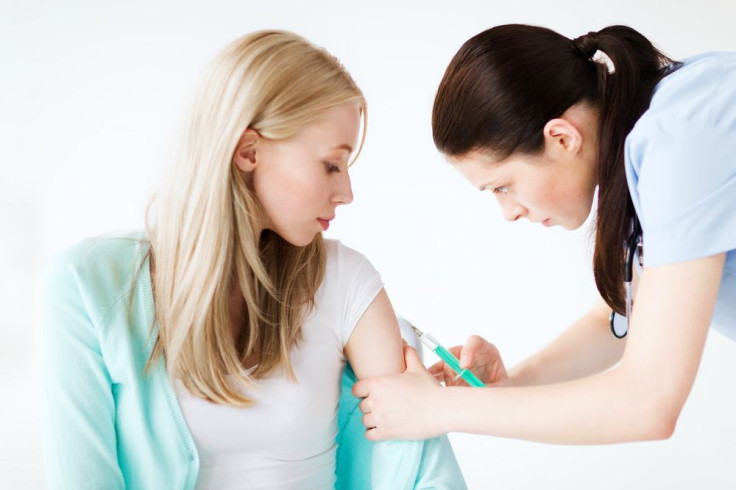HPV Vaccination Does Not Increase Women's Blood Clot Risk

There are currently two human papillomavirus (HPV) vaccines approved by the Food and Drug Administration, including Cervarix and Gardasil, both of which are considered “very safe.” A recent study conducted at the Statens Serum Institut in Copenhagen, Denmark has revealed that women who receive the quadrivalent human papillomavirus (HPV) vaccination are not at risk to subsequent blood clotting.
"Safety concerns can compromise immunization programs to the detriment of public health, and timely evaluations of such concerns are essential," authors of the study said in a statement. "Our results, which were consistent after adjustment for oral contraceptive use and in girls and young women as well as mid-adult women, do not provide support for an increased risk of VTE following quadrivalent HPV vaccination.”
Lead researcher Nikolai Madrid Scheller and his colleagues gathered data using Danish national registers to examine a possible correlation between HPV vaccination and venous thromboembolism (VTE), a blood clotting disease that includes both deep vein thrombosis (DVT) and pulmonary embolism (PE). Data sets taken from October 2006 to July 2013 included 1,613,798 women between the ages of 10 and 44 — 500,345 of which had received the HPV vaccine.
After factoring in the use of oral contraceptives, use of blood thinners, and subsequent hospital diagnoses of VTE that was not related to pregnancy, surgery, or cancer, 4,375 cases of VTE were discovered. Around 20 percent of these women had received the HPV vaccination over the course of the study period. The research team identified no associations between the HPV vaccine and VTE diagnoses within 42 days, the main risk period, of receiving the vaccination.
According to the Centers for Disease Control and Prevention, HPV vaccinations like Cervarix and Gardasil are given in the form of three shots over a period of six months to protect patients against the HPV infection and its health complications. The CDC recommends both boys and girls receive the HPV vaccination at around 11 or 12 years. An estimated 7,000 HPV-related cancer cases in the United States can be prevented with HPV vaccination.
Source: JAMA. 2014.



























